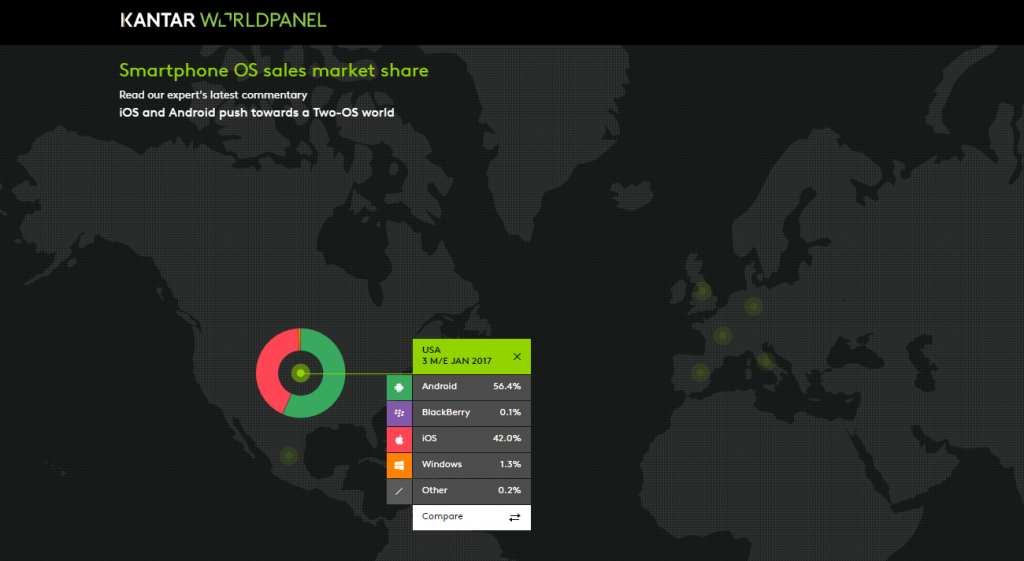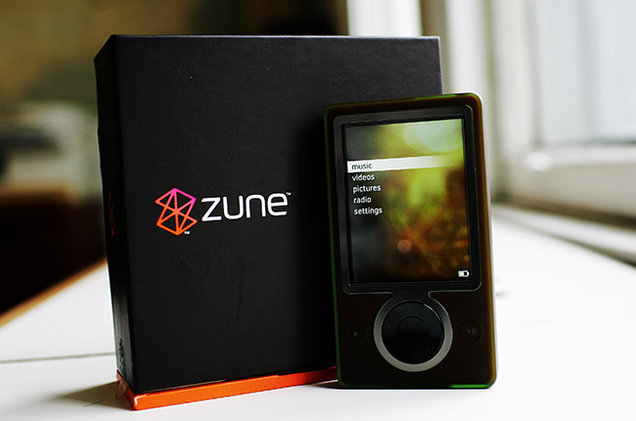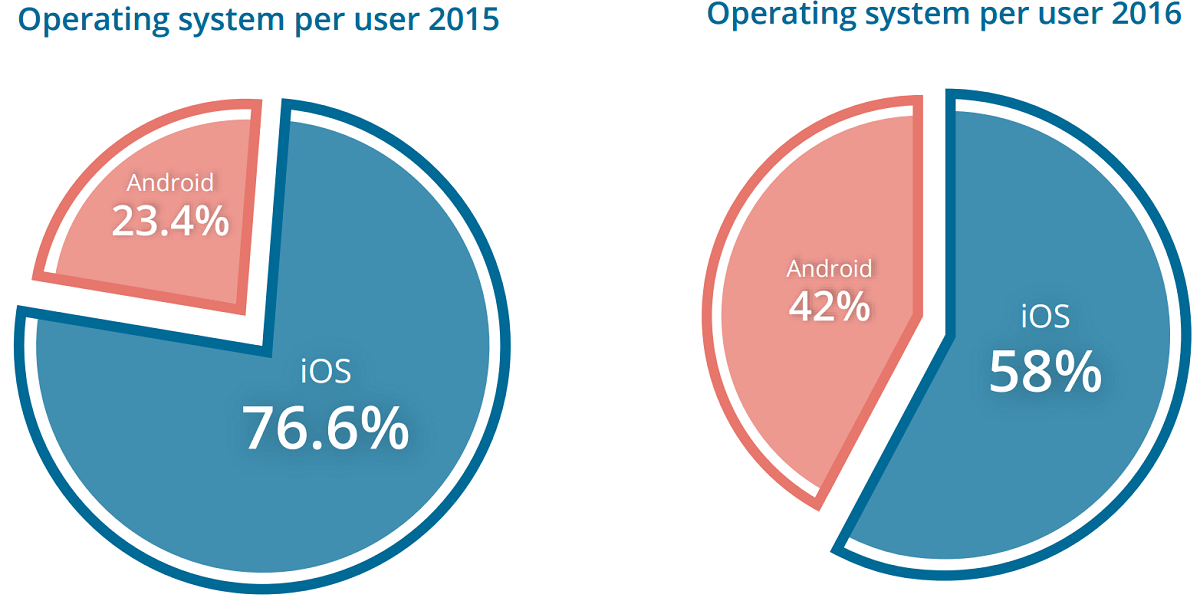The horror/suspense movie Get Out was fantastic. From end-to-end it was genuinely scary, but there was one thing in the movie that was the most out of place, off-putting, and strange. The main character (and all the characters, really) used Windows Phones.

Obviously, Microsoft had a deal with the studio and wanted to get some advertising in. In actuality, anytime the Windows logo was seen on a phone or a Surface (or Bing Search, especially), people in the theater chuckled. It was a bit of unintentional comedy throughout the movie. But why?
Windows Phone market share is almost gone.
The theme of Get Out was all about how scary it can be to be a minority, and it’s fitting that the protagonist uses a Windows Phone. According to IDC Research, by 2021 Windows Phone shipments will drop from the 0.1% that it is today, to zero. That’s remarkable, especially considering that Windows Mobile (the mobile OS before rebranding) was the market leader along side Symbian just 10 years ago with 42% of the market. But 10 years ago the iPhone dropped and everything changed.
Today, Windows Phone is an endangered species, clearly shown on this interactive chart of mobile OS usage made by Kantar World Panel. Here’s a snapshot of the US:

It’s clear to see that the US has been a two OS country for years now. In fact, just 3 million people in the US use a Windows Phone and the numbers are dropping fast. So what went wrong for the once leader in the mobile space?
Remember the Zune?
For the kids reading, the Zune was Microsoft’s attempt at the iPod killer. It looked like this:

And it failed for two reasons laid out by Robbie Bach, the former leader of Microsoft’s mobile business:
The portable music market is gone and it was already leaving when we started. We just weren’t brave enough, honestly, and we ended up chasing Apple with a product that actually wasn’t a bad product, but it was still a chasing product, and there wasn’t a reason for somebody to say, oh, I have to go out and get that thing.”
We did some really artsy ads that appealed to a very small segment of the music space, and we didn’t captivate the broad segment of music listeners.
So in essence: 1) too little, too late; and 2) too niche.
Those two reasons are basically why Windows Phone is failing as well. When the iPhone hit in 2007 and caught everyone with their pants down, Microsoft didn’t move quickly enough to compete. And even when they did, it wasn’t a priority for them, unlike over at Google where they made mobile a top priority. By the time Microsoft realized mobile was the future of tech (and hardware, and business, etc), it was too late.
And their products were good, but only serviced a specific segment of users: those who were already Windows acolytes. Well-designed phones like the Lumia series were handicapped by Windows Phone OS that only appealed to die-hard Windows users. Potential customers stayed away in droves because the best apps were just never available on Windows Phones like they were with iOS and Android. Microsoft didn’t try hard enough to please the masses.
Zune history repeated itself all over again with Windows Phone. And it’s still happening…
The Surface Phone is already late, and won’t help.
The Microsoft Surface’s market share is growing by leaps and bounds, and it’s a bona fide hit. To piggyback off its success, Microsoft announced they would rebrand their smartphones under the Surface name. That caused a modicum of interest, but the Surface Phone has been delayed to maybe 2018 or 2019 and rumored specs are not impressive. Again, this is too little, too late.
We are in the business of making apps and anecdotally, requests for Windows Phone apps have all but dried up. There isn’t much chatter in our industry about developing for Windows 10 Mobile and even with the advent of the Surface Phone, we don’t really expect that to change. Both the people and companies have spoken, and for smartphones, it’s a two horse race.
But don’t expect Microsoft to give up. They’ve got deep pockets and they know by now that mobile is the future. Maybe business tablets will be their niche, or they’ll try making an Xbox Mobile to compete with the Nintendo Switch, or perhaps something in the Internet of Things realm will take off for them. Smartphones may be a lost cause, but we’d bet they have more mobile moves to make.
What do you think of Windows Phone?









